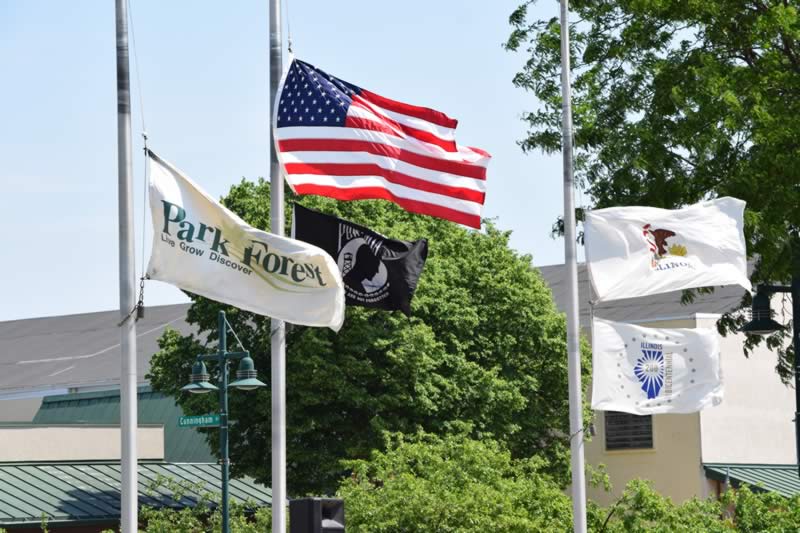Park Forest, IL-(ENEWSPF)- It’s only been a year since property tax assessments shot up. Now, Park Forest residents can expect property tax pain soon. Indeed, when next year’s tax bills go out. A study by the Illinois Answers Project concludes that property owners and businesses are in line for the biggest “sticker shock” with these bills, the study says.
Alex Nitkin quotes Kristi DeLaurentiis, executive director of the South Suburban Mayors and Managers Association. “I think we’re in line to see this pendulum swing,” she says. “The valuations might very well be unprecedented.”
For a town like Park Forest already experiencing property tax pain, this news is not welcome. This stings even more as Mr. Nitkin reports, “Hikes were more muted in wealthier west-suburban Riverside.”
Appeal to Lessen Property Tax Pain
As we noted before, residents may appeal their property taxes. The Cook County Assessor‘s office says people have 30 days to file an appeal after receiving their reassessment notice. The last date to file an appeal for that year is printed on your notice.” The Village of Park Forest hosted workshops in the past to assist residents in appealing their assessments.
The assessor offered steep breaks to some businesses and homes during the pandemic, Mr. Nitkin reports. “As a result, many south-suburban homes whose property values were already low had their entire tax obligation wiped away, shifting the burden onto higher-value buildings like office and apartment complexes,” Mr. Nitkin says.
“We had houses … ended up having zero tax bill” after homeowner exemptions kicked in, said Sandra Zoellner. Ms. Zoellner serves as director of economic development for the Village of Park Forest. “We had to give them rebates after their first installment [tax payments].”
Zoellner and a group of her colleagues in Park Forest asked [Cook County Assessor Fritz] Kaegi to correct the under-valued homes last year, Nitkin reports. Assessor Kaegi declined, opting instead to wait until 2023 assessments gave the region a fresh look.
Exemptions Don’t Help
Ms. Zoellner predicted the coming property tax crunch will be exacerbated by the growing use of exemptions and freezes, Mr. Nitkin said. These funnel tax obligations into a narrower and narrower pool of property owners.
In 2017, the Illinois General Assembly voted to expand the Senior Citizens Homestead exemption. This rose from $5,000 to $8,000. Meanwhile, in Cook County as Chicago property owners were reeling from an unprecedented 2015 tax hike. State lawmakers followed up in 2019 with a new law championed by Kaegi. This law automatically enrolled seniors in the exemption instead of requiring them to apply anew each year.
As a result of the exemptions, nearly 1,000 Park Forest homeowners have paid no taxes on their homes since 2020, Zoellner said. This forced more of the burden onto local business owners, according to Zoellner.
Thus, the owners of the 7-Eleven convenience store in Park Forest paid almost $99,000 in property taxes last year. Their property is valued at around $300,000. This is almost double what it paid in 2020, Cook County tax records show. At the same time, a single-family home around the corner valued above $58,000 paid no taxes.
“With these exemptions, the state is basically saying they value homeowners, seniors, and veterans over business owners and renters,” Zoellner said. “Rental properties and homeowner properties have access to the same services — the same streets, the same fire [department].”
This article was originally published by the Illinois Answer’s Project. Read the full article here: “South-Suburban Homeowners Next in Line for Property Tax Pain.” eNews Park Forest used this with permission and edited it for Park Forest. Mr. Nitkin conducted the interviews with Ms. Zoellner.
About Alex Nitkin
Alex Nitkin is a solutions reporter conducting investigations on efforts to fix broken systems in Chicago, Cook County, and Illinois government. Before joining Illinois Answers, he worked as a reporter and editor for The Daily Line covering Cook County and Chicago government. He previously worked at The Real Deal Chicago, where he covered local real estate news, and DNAinfo Chicago, where he worked as a breaking news reporter and then as a neighborhood reporter covering the city’s Northwest Side. A New York City native who grew up in Connecticut, Alex graduated from Northwestern University’s Medill School of Journalism with a bachelor’s degree.









